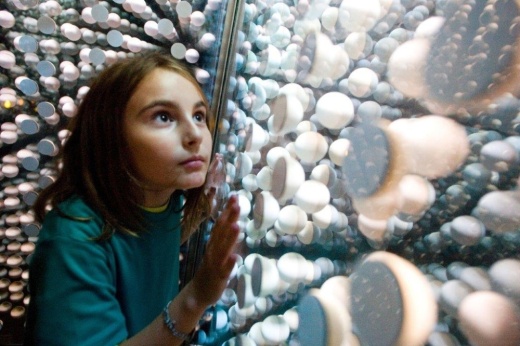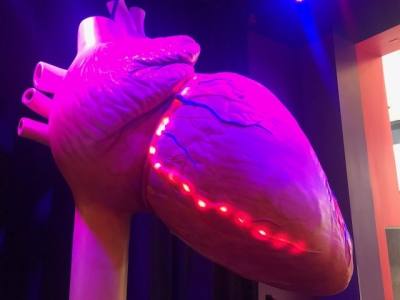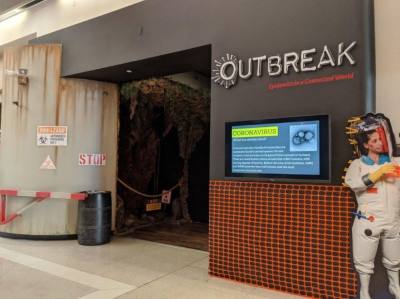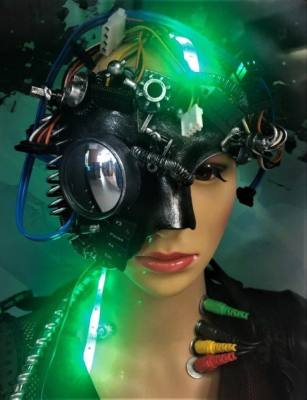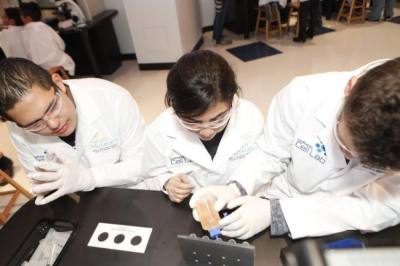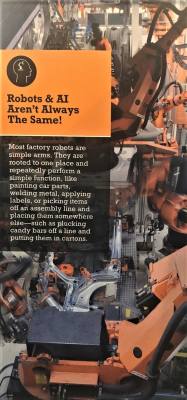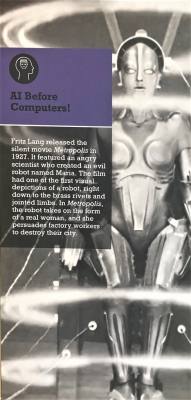Within Houston’s diverse and robust museum scene sits a knowledge epicenter for one of the universe’s most beautiful complexities: humankind. The Health Museum aims to be a one-stop resource for trustworthy information on anatomy, environment, medicine and the union of all three.
With the goal of empowering healthier living, The Health Museum’s mission is to inspire wonder and awe around health, medicine and the human body. Loved by people of all ages, the Smithsonain affiliate celebrated 50 years of operation in 2019, as its origination was a result of polio epidemics and vaccine drives that occurred in the 1960s.
“What we do is explore our experience in our human bodies, basically from birth to death,” said Becky Seabrook, Senior Director of Guest Engagement. “Both when our bodies are working and when they’re not working, how we interact with others and how we interact with our environment.”
Its newest exhibit, “Artificial Intelligence: Your Mind & The Machine,” is an interactive and informational comparison of how humans and machines learn that engages visitors through video, motion and touch.
“It’s really accessible and it talks not only about the science behind AI and machine learning, but also the impact of what it really means for the community and the ethics around AI, and it has some really cool interactives,” Seabrook said.
With more than 15 stations, AI and machines within the exhibit recognize speech, capture images of patrons to create artwork, play video games against museum-goers, and turn a few piano notes into a full song.
“It gives people a little bit more of a basis for understanding the technology when they’re hearing about it in the community,” Seabrook said. “I also think it gives people a respect for the mind ... [Our bodies] are a complex universe of things that are happening that we’re just not even conscious of.”
Another exhibit running until later this year is “Outbreak: Epidemics in a Connected World,” which takes a look at the impact of infectious diseases through both science and community lenses, from the 1920 bubonic plague in Galveston and the polio epidemic to HIV/AIDS and COVID-19.
One part of Outbreak is “Living Icons,” a photo exhibit by artist Joni Zavitsanos featuring hundreds of Houston-area COVID-19 victims. A tree of life sculpture is at the center of the installation, which has resin leaves inscribed with names of those lost to the pandemic.
One of its most popular permanent exhibits is the Amazing Body Gallery, which features a 10-foot-tall walk-through brain with memory games, a 12-foot-tall beating heart, a massive eyeball that demonstrates how eyes receive images and a calorie crank displaying how many calories must be burned for specific foods.
An upcoming opportunity at The Health Museum is its flagship program for teens, the annual Global Teen Medical Summit, which is returning to its in-person format this summer from July 11-15. Environment, climate change and health are featured topics that attendees will deep-dive into over the course of the week.
“The conference is all about looking at some of the big challenges that we’re facing both here in Texas and globally, and looking at the ways people are thinking outside of the box to try and address and solve those problems,” Seabrook said.
Set to launch this fall, Houstonians can look forward to The Health Museum showing an Oprah Winfrey Network documentary “The Color of Care,” which will discuss additional health care challenges often faced by communities of color.
The Health Museum also actively partners with local organizations to better the Houston community in a variety of ways. Whether it be promoting biking to improve air quality or touring with Houston Public Library to bring awareness to certain topics, the museum hopes to create social experiences that inspire lasting impacts.
“At any given time [in the news], you can find multiple conversations and issues that relate back to health and medicine,” Seabrook said. “I see The Health Museum as being the place that creates space for conversation around it that isn’t necessarily polarized conversation ... a space where people can—regardless of where they’re coming from on different issues—feel like they can come and ask questions and get information they can trust.”
Learn more about The Health Museum and plan a visit at https://www.thehealthmuseum.org/.
The above story was produced by Community Impact's Storytelling team with information solely provided by the local business as part of their "sponsored content" purchase through our advertising team. Our integrity promise to our readers is to clearly identify all CI Storytelling posts so they are separate from the content decided upon, researched and written by our journalism department.
Select your community
Support Us
News
- Austin Metro
-
Houston Metro
- Houston Metro Home
- Bay Area
- Bellaire | Meyerland | West University
- Conroe | Montgomery
- Cy-Fair | Jersey Village
- Cypress
- Heights | River Oaks | Montrose
- Katy | Fulshear
- Lake Houston | Humble | Kingwood
- New Caney | Porter
- Pearland | Friendswood | Manvel
- Spring | Klein
- Sugar Land | Missouri City
- The Woodlands
- Tomball | Magnolia
- Dallas | Fort Worth Metro
- San Antonio Metro




